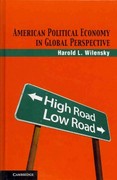Question
1) All of the following are major goals of fiscal policy except a) full employment b) stable price c) economic growth d) zero net exports
1) All of the following are major goals of fiscal policy except
a) full employment
b) stable price
c) economic growth
d) zero net exports
2) An expansionary fiscal policy tends to increase
a) real output and employment, but not income
b) real output and employment, but not employment
c) income and employment, but not real output
d) real output, employment, and income
3) To combat a recession, discretionary policy could result in a(n)
a) increase in taxes, decrease in government expenditures, and cause a rightward shift in the aggregate demand curve
b) decrease in taxes, decrease in government expenditures, and cause a rightward shift in the aggregate demand curve
c) increase in taxes, decrease in government expenditures, and cause a leftward shift in the aggregate demand curve
d) decrease in taxes, decrease in government expenditures, and cause a leftward shift in the aggregate demand curve
4) To combat a recession, fiscal policy should move toward a budget that is
a) balanced
b) in a deficit
c) in a surplus
d) as low as possible
5) If the Singapore government desires to increase the level of employment and real output, it could
a) increase corporation income taxes
b) provide an investment tax credit
c) decrease expenditures on roads and dams
d) increase the personal income taxes
Step by Step Solution
There are 3 Steps involved in it
Step: 1

Get Instant Access to Expert-Tailored Solutions
See step-by-step solutions with expert insights and AI powered tools for academic success
Step: 2

Step: 3

Ace Your Homework with AI
Get the answers you need in no time with our AI-driven, step-by-step assistance
Get Started


